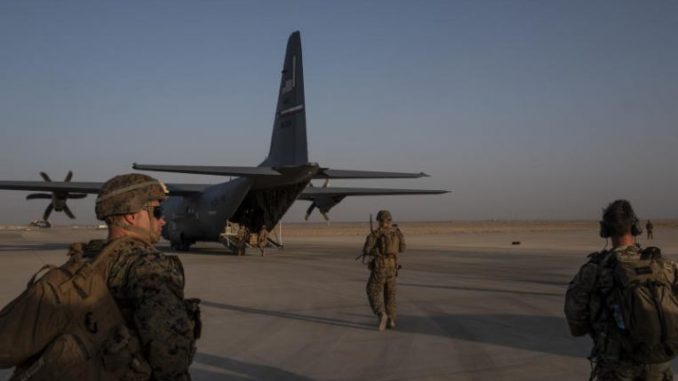

KABUL (NYTIMES) – More than 18 years after the United States invaded Afghanistan, President Donald Trump has conditionally approved a peace deal with the Taleban that would withdraw the last American troops from the country, potentially beginning the end of America’s longest war, according to Afghan and US officials.
But the deal will be signed only if the Taleban prove its commitment to a durable reduction of violence over a test period of about seven days later this month.
If the Taleban does end hostilities and a deal is signed, the US would then begin a gradual withdrawal of American troops, and direct negotiations would start between the Taleban and Afghan leaders over the future of their country.
Secretary of State Mike Pompeo informed Afghanistan’s top leaders in separate phone calls on Tuesday (Feb 11) that Mr Trump had given tentative approval to this approach, according to a senior Afghan official briefed on one of the calls.
A senior US official aware of the developments also confirmed that Mr Trump had given his preliminary approval for a deal on Monday, dependent on a cessation of violence, the same day he visited Dover Air Force Base to receive the remains of the latest US fatalities in the war, which has killed tens of thousands of Afghans and more than 3,500 American and coalition troops since the US drove the Taleban from power in 2001.
A senior diplomat in Washington described the deal as “95 per cent agreed to in principle”, but that the possibility of a final agreement will become clearer in a matter of a couple weeks.
A senior Taleban official informed of the negotiations said there were now “positive movements”, but declined to discuss details because the group’s internal deliberations were continuing.
While the move could mark a significant moment in Mr Trump’s pledge to end what he has described as “endless wars”, the talks have long remained fragile and previously broke down just as a signing was near.
After nearly a year of negotiations, the two sides were on the verge of a similar deal last September.
Mr Trump suddenly called off the talks, citing a Taleban attack that killed an American and Nato soldier and nearly a dozen Afghans.
But officials said it was largely because Mr Trump’s grand gesture of inviting the Taleban to Camp David to finalise that the deal fell apart.
After that, it took months of trust-building work, including a prisoner swap, to get back to the negotiating table.
The deal’s details – including the timeline of the troop withdrawal and how much of the agreement had changed since the two sides were on the verge of a signing last September – remained tightly guarded.
“This is a welcoming development and I am pleased that our principal position on peace thus far has begun to yield fruitful results,” President Ashraf Ghani said in a statement announcing his call with Mr Pompeo. “Our primary objective is to end the senseless bloodshed.”
Mr Ghani said Mr Pompeo had informed him of “notable progress made in the ongoing peace talks” and of the “Taleban’s proposal with regards to bringing a significant and enduring reduction in violence”.
Mr Abdullah Abdullah, the Afghan government’s chief executive who had also received a call, said Mr Pompeo had “expressed optimism that a reduction in violence and progress with current talks could lead to an agreement”.
For the past month, US negotiators, led by the veteran diplomat Zalmay Khalilzad, have been camped out in the Gulf state of Qatar, trying to persuade the Taleban to come to terms.
The most recent sticking point had been an American demand for the Taleban to significantly reduce its attacks across the country during the signing and after – when the peace process moves to its next stage.
The Taleban have signalled its willingness to sit down with the Afghan government and other leaders to discuss the political future of the country – but only after the Americans agree to leave the country.
